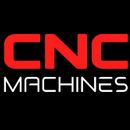CNC Mill/Turn Machines vs. Separate CNC Mill and CNC Lathe Machines: Which is Better?

CNC Mill/Turn Machine vs. Separate CNC Mill and CNC Lathe Cell Setup
The evolution of CNC (Computer Numerical Control) technology has brought forth various advanced machining solutions. Among them, the CNC Mill/Turn machine, also known as the "done-in-one" machine, stands out for its ability to perform both milling and turning operations within a single setup. This article compares the CNC Mill/Turn machines with traditional separate CNC mill and lathe machines, highlighting their pros and cons, applications, and the best brands for Mill/Turn technology. A case study is also included to illustrate their practical applications.
What is a CNC Mill/Turn Machine?
A CNC Mill/Turn machine combines the capabilities of a CNC mill and a CNC lathe, allowing for both milling and turning operations to be performed in a single machine setup. This integration streamlines the manufacturing process by eliminating the need to transfer workpieces between different machines, thus reducing setup times and increasing efficiency.
Pros and Cons of CNC Mill/Turn Machines
Pros:
- Increased Efficiency: By combining milling and turning operations, Mill/Turn machines reduce the number of setups required, leading to shorter production times and increased throughput.
- Reduced Setup Time: Eliminating the need to move workpieces between machines saves significant setup time and minimizes the risk of errors associated with realignment.
- Enhanced Precision: Performing multiple operations in a single setup improves part accuracy and consistency.
- Space Saving: Consolidating two machines into one saves valuable shop floor space.
- Cost Savings: While the initial investment may be higher, the long-term savings in labor, setup, and operational costs can be substantial.
Cons:
- Higher Initial Cost: CNC Mill/Turn machines generally have a higher purchase price compared to separate CNC mills and lathes.
- Complexity: These machines are more complex to program and operate, requiring skilled operators and comprehensive training.
- Maintenance: Maintenance and repairs can be more challenging and costly due to the machine's integrated nature.
Pros and Cons of Separate CNC Mill and CNC Lathe Machines
Pros:
- Specialization: Separate machines allow for specialization, with each machine optimized for its specific operation.
- Flexibility: Having separate machines provides more flexibility in managing different types of jobs simultaneously.
- Lower Initial Investment: Individual CNC mills and lathes typically have lower initial purchase costs.
Cons:
- Increased Setup Time: Transferring workpieces between machines increases setup time and the potential for alignment errors.
- Space Requirement: Separate machines require more floor space.
- Operational Efficiency: Managing multiple machines for a single part can be less efficient and more labor-intensive.
Best CNC Brands for Mill/Turn Technology
- DMG MORI: Known for their high-precision and reliable Mill/Turn machines, DMG MORI offers a wide range of models catering to various industries.
- Mazak: Mazak’s INTEGREX series is renowned for its multi-tasking capabilities, providing seamless integration of milling and turning operations.
- Okuma: Okuma’s MULTUS series combines advanced milling and turning technologies with user-friendly controls and high productivity.
- Haas Automation: Haas offers cost-effective solutions with their CNC Mill/Turn centers, known for their robustness and ease of use.
Applications of CNC Mill/Turn Machines
- Aerospace: Complex components with tight tolerances and intricate geometries.
- Automotive: Engine parts, transmission components, and other precision parts.
- Medical Devices: Surgical instruments and implants that require high precision and complex shapes.
- Oil and Gas: High-strength components such as valves and fittings.
- General Manufacturing: Any industry requiring efficient production of complex parts with reduced setup times.
Case Study: Precision Tech Industries
Company Profile:
Precision Tech Industries is a manufacturer specializing in high-precision components for the aerospace and automotive sectors.
Challenge:
The company faced challenges with long setup times and alignment errors when using separate CNC mills and lathes, leading to production delays and increased costs.
Solution:
Precision Tech invested in a DMG MORI Mill/Turn machine to streamline their production process.
Implementation:
- Training: Operators received comprehensive training to handle the new machine’s programming and operations.
- Integration: The machine was integrated into the existing workflow, replacing the separate milling and turning operations.
Results:
- Reduced Setup Time: Setup times were reduced by 40%, significantly speeding up the production process.
- Improved Accuracy: The single setup reduced alignment errors, resulting in a 25% improvement in part accuracy.
- Increased Throughput: Overall production throughput increased by 30%, allowing the company to meet tight deadlines more effectively.
- Cost Savings: Despite the higher initial investment, the company saw substantial long-term savings in labor and operational costs.
CNC Mill/Turn machines offer a highly efficient and precise solution for complex machining operations, combining the strengths of both milling and turning into one integrated system. While they come with higher initial costs and complexity, the long-term benefits in terms of reduced setup times, improved accuracy, and increased productivity make them a valuable investment for many manufacturing applications. By understanding the specific needs and challenges of their operations, manufacturers can make informed decisions on whether to adopt Mill/Turn technology or continue with separate CNC mills and lathes.
References
- "Understanding CNC Mill/Turn Centers," CNC Masters, 2023.
- "Advantages of Mill-Turn Technology," Modern Machine Shop, 2022.
- "DMG MORI Mill/Turn Machines," DMG MORI, 2023.
- "Mazak INTEGREX Series," Mazak, 2023.
- "Okuma MULTUS Series," Okuma, 2023.
- "Benefits of Combined Mill/Turn Machining," Haas Automation, 2023.


